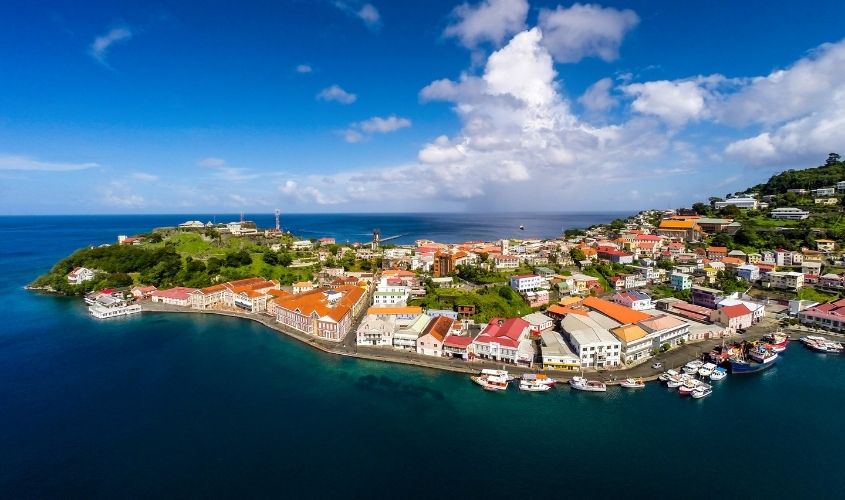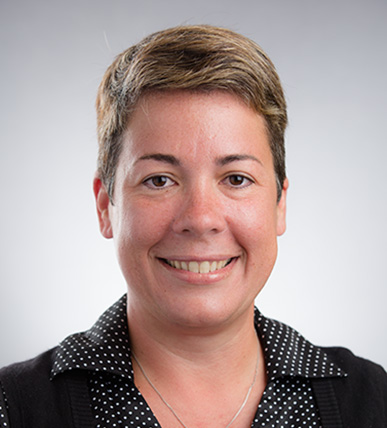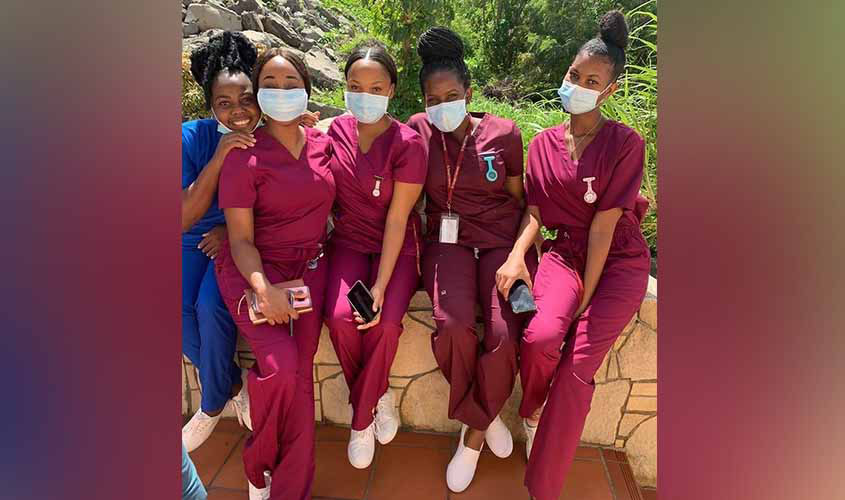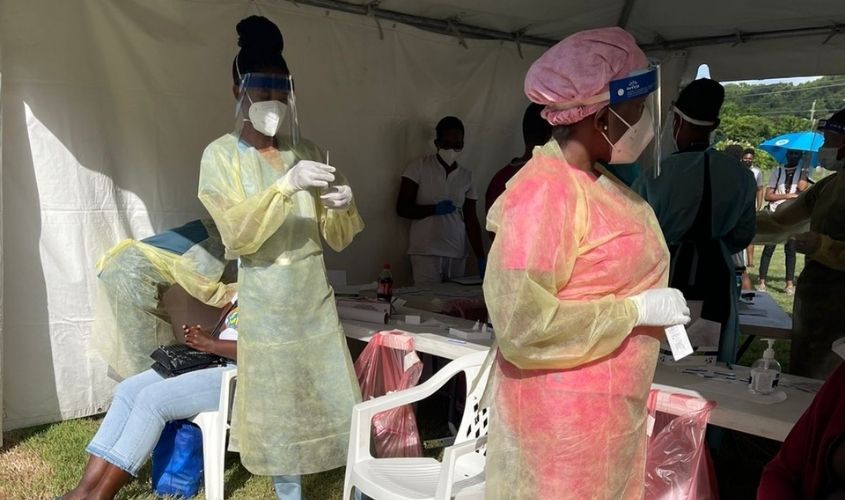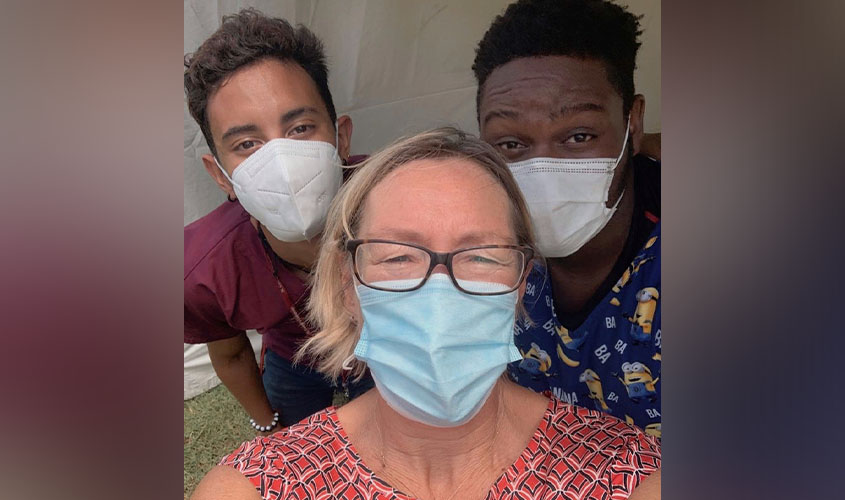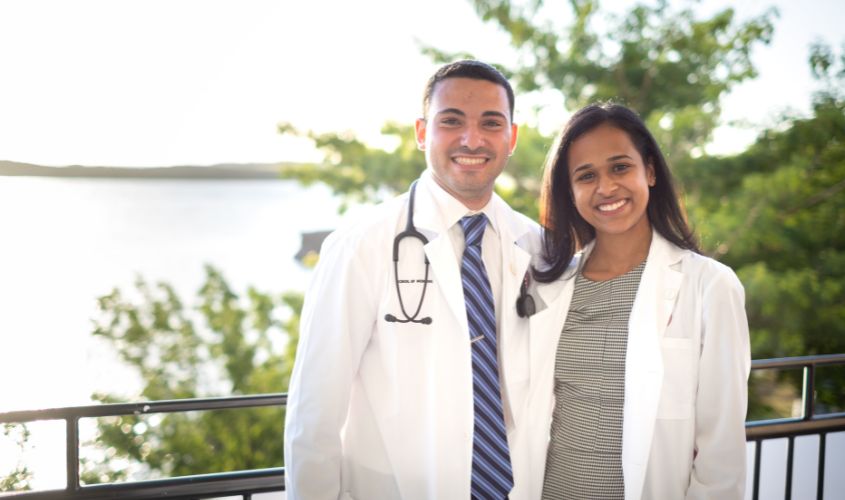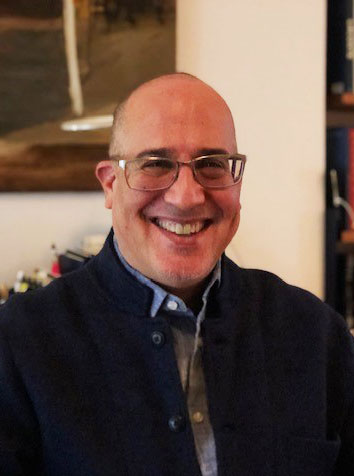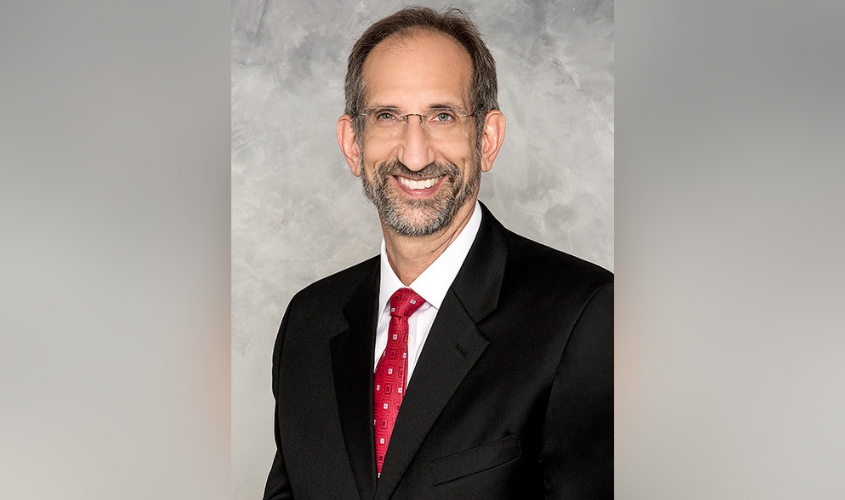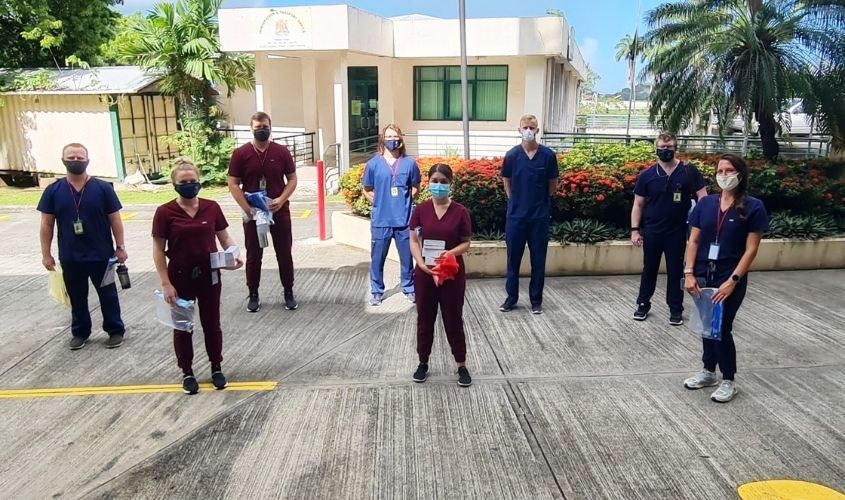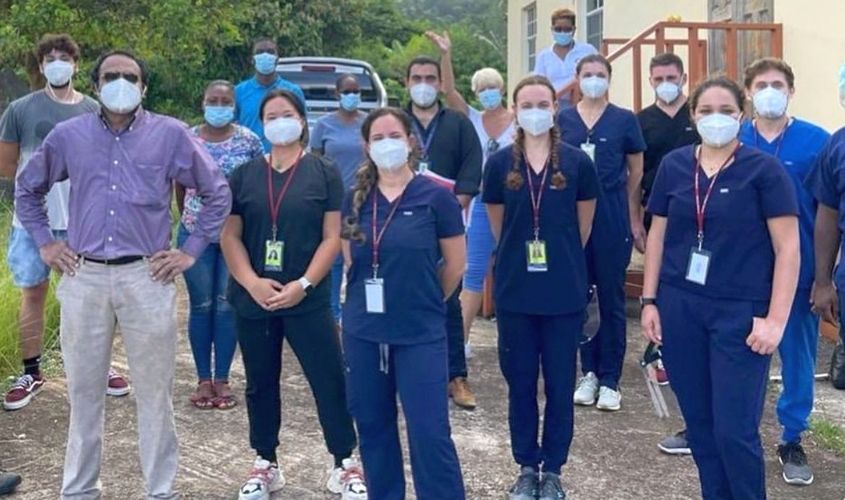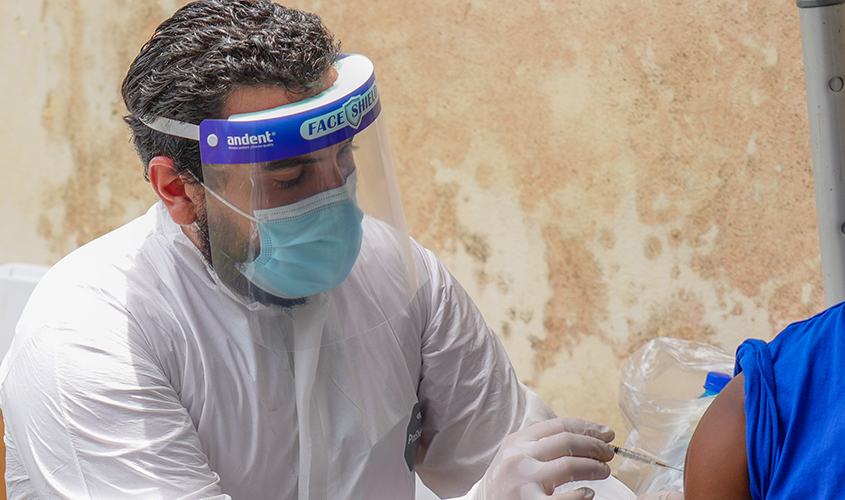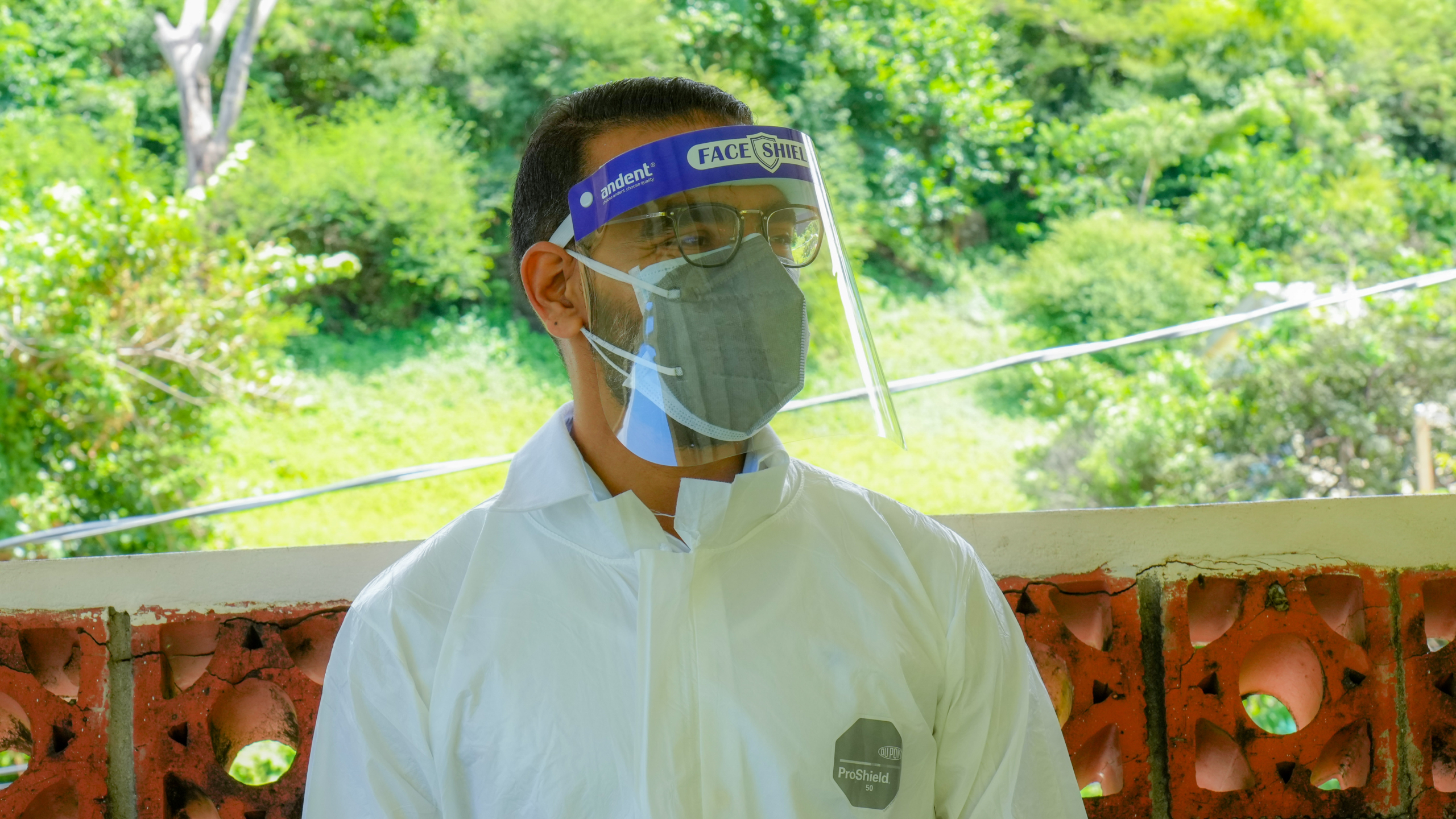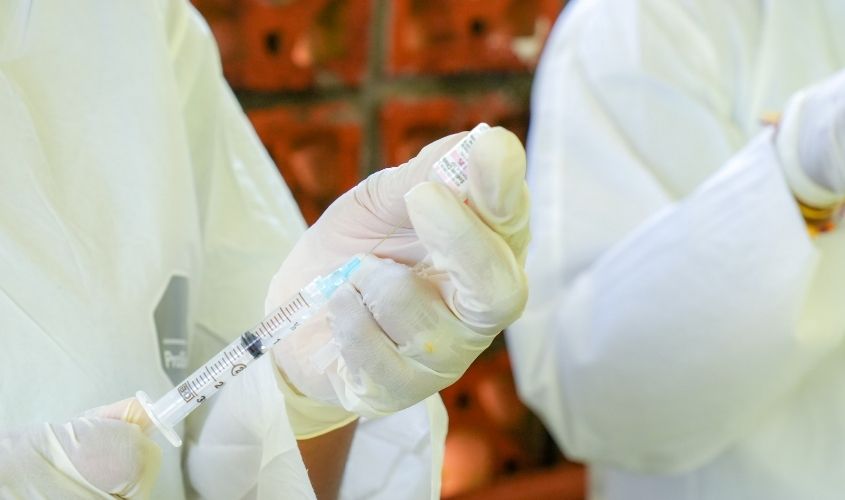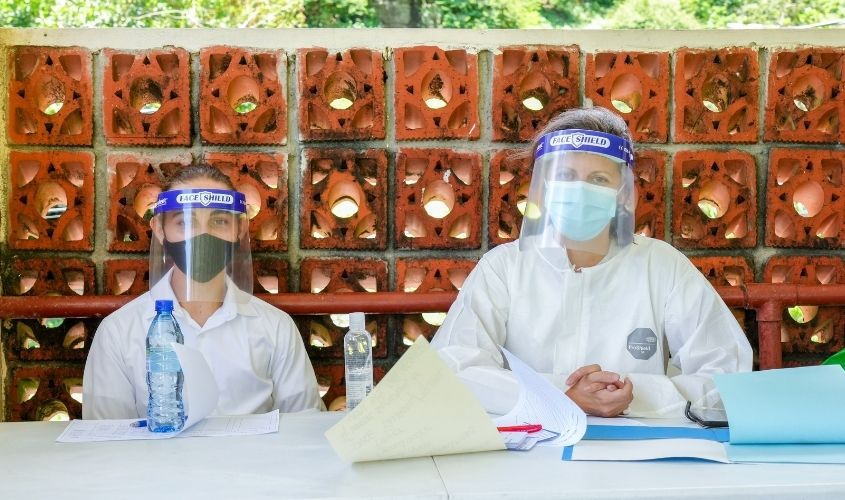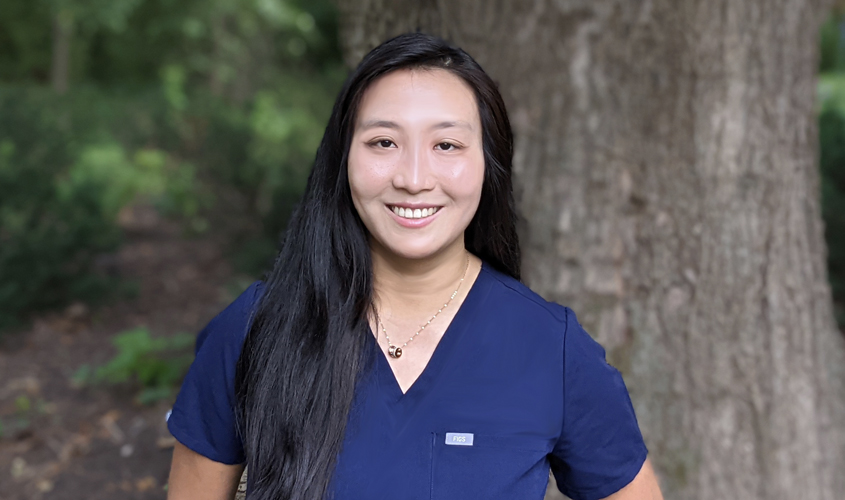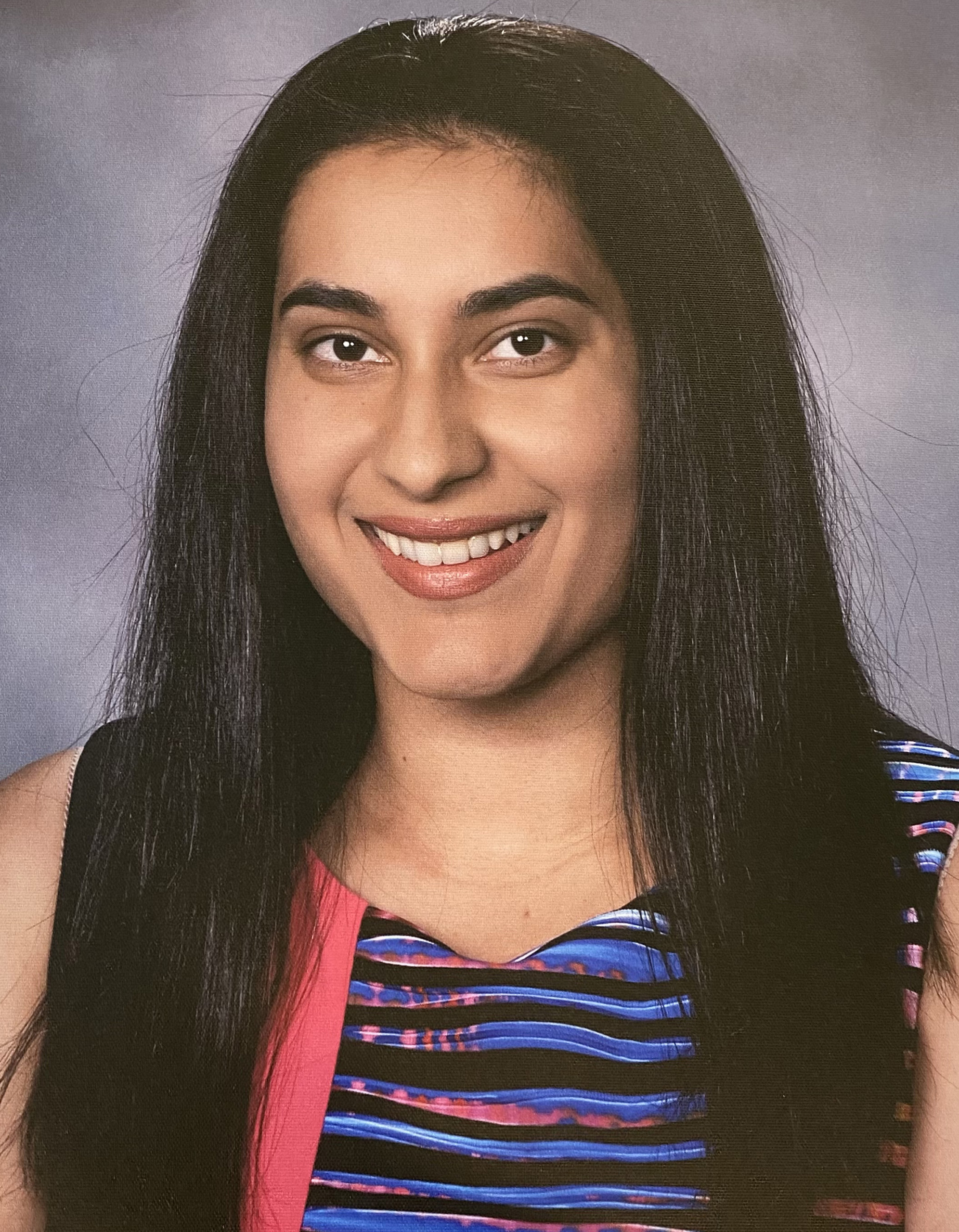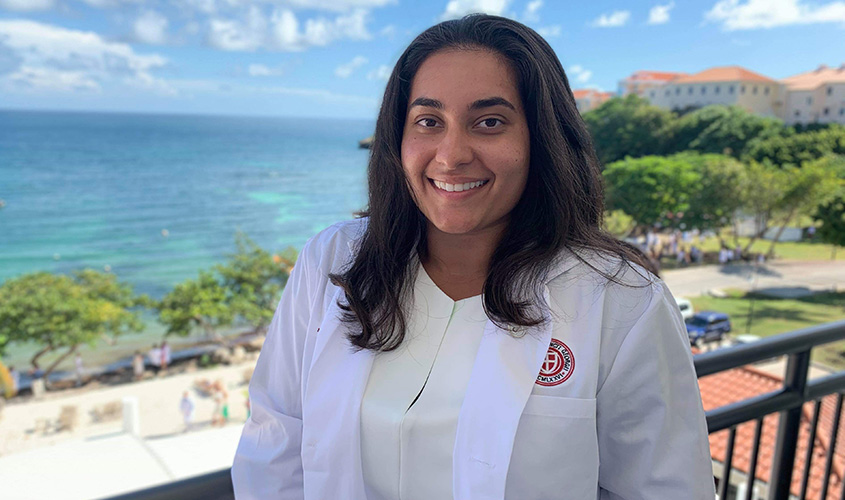Breast Cancer Awareness Month: Women in Medicine Students Weigh In
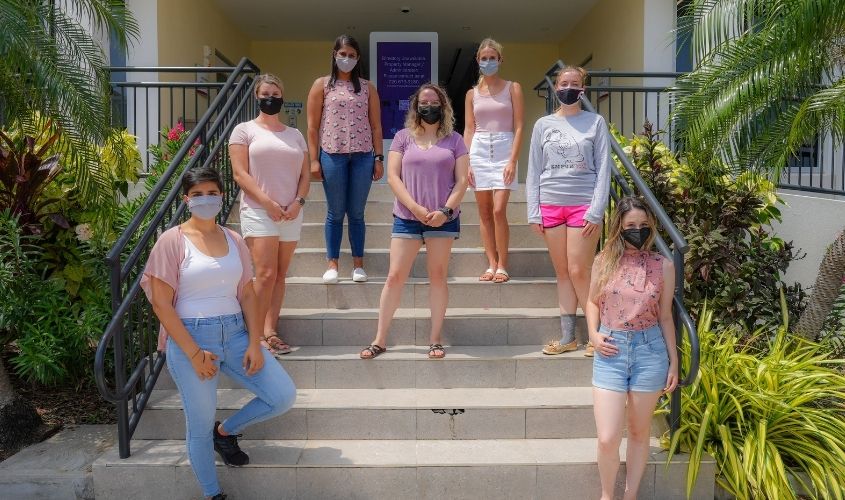
October is Breast Cancer Awareness, an annual international campaign by major breast cancer charities to raise awareness about the impact of breast cancer.
As the world’s most prevalent cancer, according to the World Health Organization—it’s not uncommon to know a mother, a sister, a grandmother, aunt, or friend who has been affected by the disease.
At St. George’s University, the student organization, Women in Medicine, dedicates a month of activities toward the campaign, culminating with its annual 5K Pink Run. This year’s event on October 24 was held both in-person for those in Grenada as well as virtually—all part of an ongoing effort to enhance the quality of care for women battling reproductive cancers in Grenada. See the full photo album of the run in Grenada on SGU’s Facebook page.
Members of the Women in Medicine club recently shared what Breast Cancer Awareness Month meant to them.
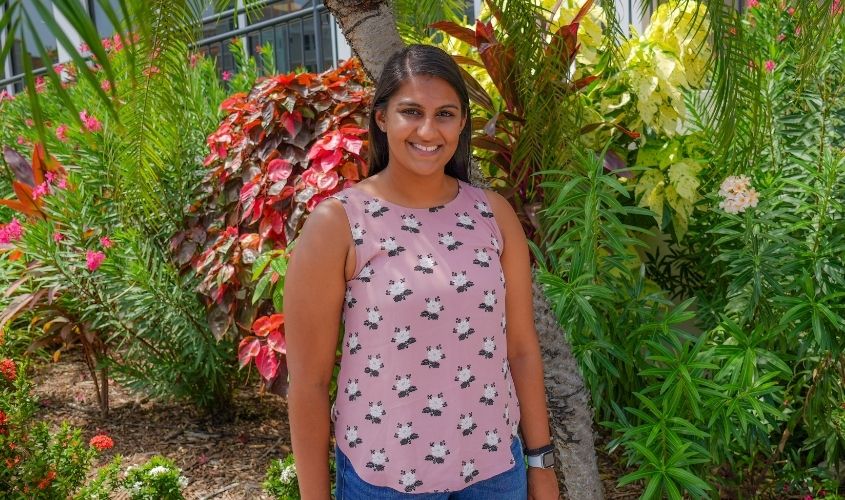
Amrita Pandey, WIM co-president, School of Medicine, Term 5
“I lost my grandmother to breast cancer when I was very little. That was during a time when research and education on breast cancer was very minimal, so I believe it is important to take the time this month to educate ourselves, support those affected, and contribute to the ongoing research. As a student, my role this month is to empower the women around me to educate themselves on regular screenings, self-exams, and reducing their risks of breast cancer.”
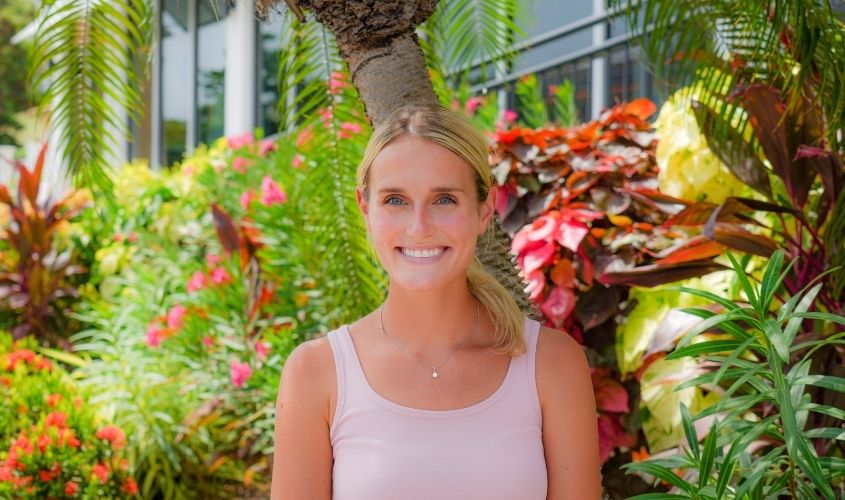
Katie Stadheim, WIM co-president, School of Medicine, Term 4
“Over the last few weeks, it has been amazing to see our strong student body come together to support strong women impacted by breast cancer in some way. We all have a similar goal of increasing awareness and making a change, as we know simple acknowledgment is not enough.”

Taylor Schrunk, School of Medicine, Term 4
“Breast cancer awareness is very important to discuss when it comes to women’s health. By bringing awareness to the topic, we can try to educate women on the signs and symptoms to look for, which can lead to early detection of the cancer. An added benefit in bringing more voices into a discussion is the opportunity to discover new ideas regarding treatment options and possibly, in the future, a cure for breast cancer.”
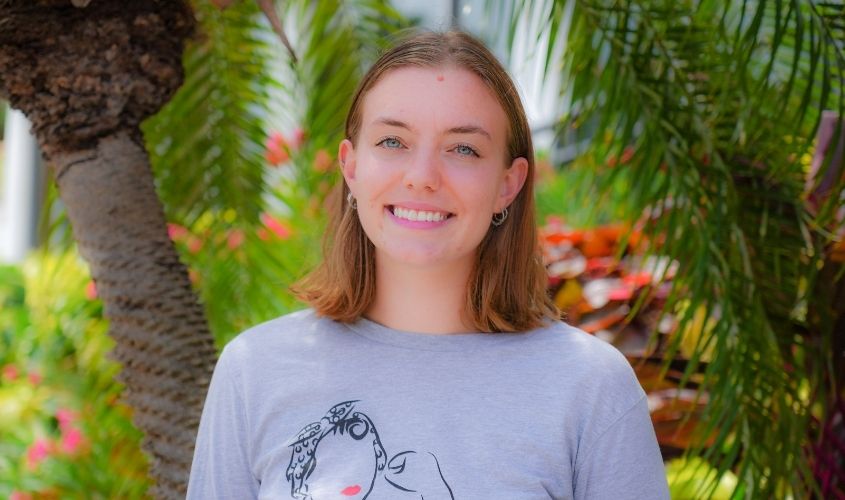
Hope VanBuren, School of Medicine, Term 4
“During this month, as it is every month, it is so important that we recognize all of the strong women in the world fighting cancers and everyone working to better their treatments.”
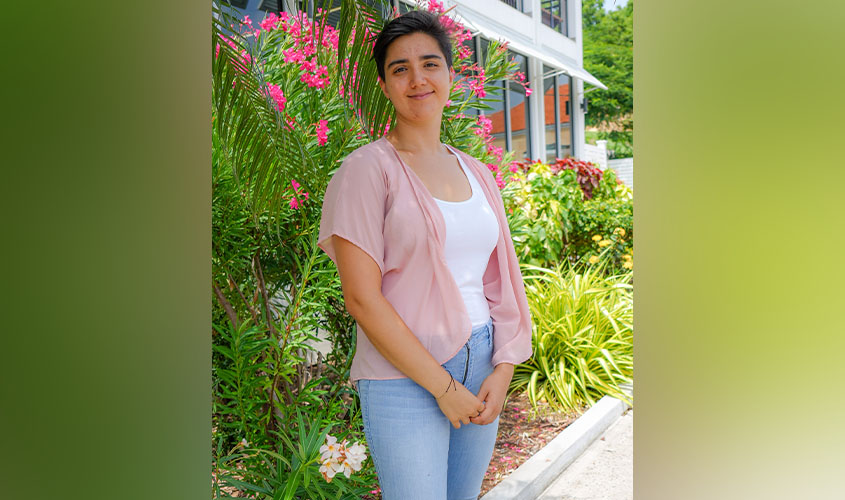
Nicole Centazzo, School of Medicine, Term 5
“As a woman and future physician, I stand with all the women and their families that have gone through and that are still fighting against breast cancer. Let’s raise awareness on women’s health!”
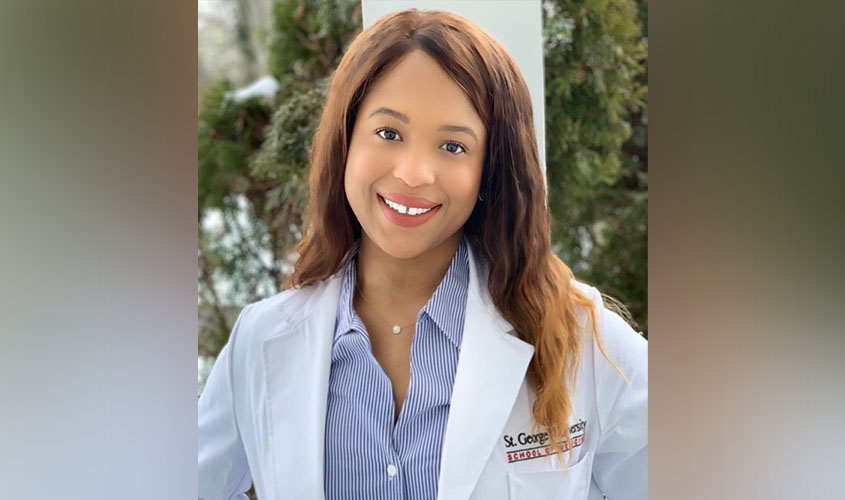
Chanel Reid, School of Medicine, Term 4
“This quote says it best: ‘Communities and countries and ultimately the world are only as strong as the health of their women.’ – Michelle Obama”
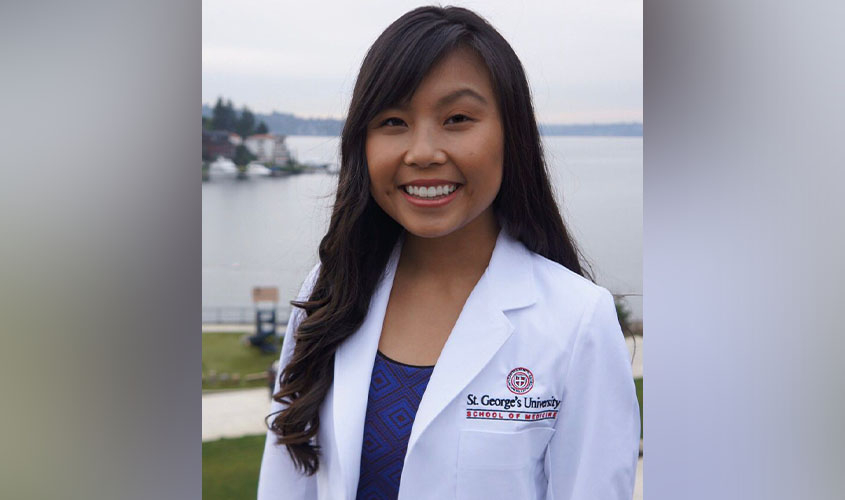
Michelle Lui, School of Medicine, Term 4
“With Breast Cancer Awareness Month, I am grateful for the opportunity to co-host the Breast Exam Seminar, presented by the Women in Medicine Club, to help spread awareness and educate on the importance of breast self-exams in prevention and early detection of breast cancer with the Grenadian community.”
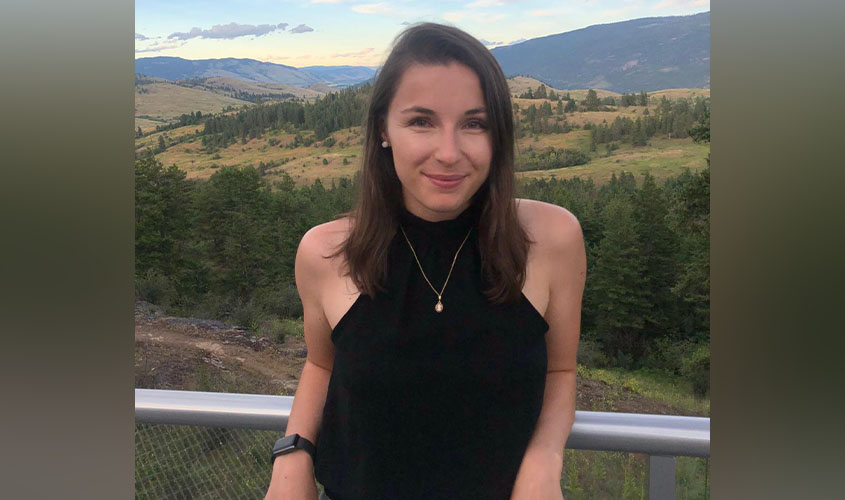
Emily Dale-Johnson, School of Medicine, Term 5
“One in eight women in the US will develop an invasive breast cancer over the course of their lifetime and, thankfully, I have not been affected by breast cancer. Yet. As women, the statistics are not in our favor and I worry about which of my family or friends will be the unlucky one. Every year, October serves as a reminder to do our screening tests, improve our overall health, and encourage other women to do the same.”
– Istra Bell and Laurie Chartorynsky
– Photos courtesy of Yuri Marryshow
